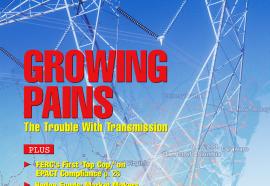Deregulation for Real
The Baltimore Sun recently carried a very poignant letter from one of its local readers— a letter that utility executives might well take to heart. Appearing under the title, “Energy Advice Cruel to Poorer Readers,” the letter took offense at an article that trivialized the effect of the huge increase in local electric bills (35 to 72 percent) expected this July with the lifting of a long-standing retail rate freeze.







